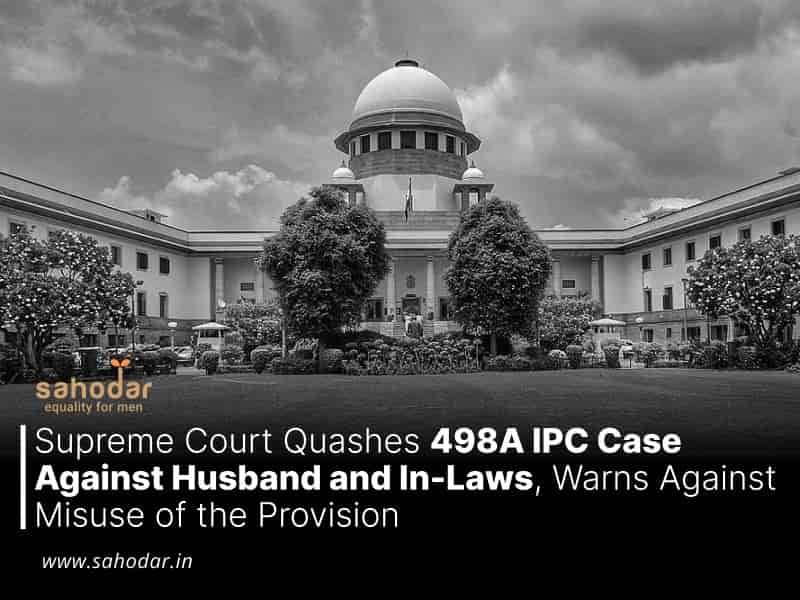The Supreme Court recently set aside an FIR and chargesheet filed against a husband and his family under Section 498A of the Indian Penal Code (cruelty towards wife), stressing that vague and non-specific allegations are insufficient to justify a criminal trial.
A Bench comprising Justice B.V. Nagarathna and Justice Satish Chandra Sharma delivered the ruling in Ghanshyam Soni v. State (Govt. of NCT of Delhi) & Anr. [2025 INSC 803], cautioning against the misuse of legal provisions while reiterating the need to protect genuine victims of cruelty.
Background
The complainant, a sub-inspector with Delhi Police, married Ghanshyam Soni in 1998. She alleged that shortly after the marriage, her husband, along with his mother and five sisters-in-law, demanded ₹1.5 lakh, a car, and a separate house as dowry, and subjected her to both mental and physical harassment. The accusations included being threatened with a dagger and assaulted during her pregnancy. She initially lodged a complaint on 03.07.2002, which led to the registration of FIR No. 1098/2002 on 19.12.2002 at PS Malviya Nagar, Delhi, under Sections 498A, 406, and 34 of the IPC. The Magistrate took cognizance of the case on 27.07.2004.
The Sessions Court, through its order dated 04.10.2008, discharged all the accused, holding that the allegations were time-barred since they related to incidents from 1999. However, in April 2024, the High Court overturned this decision and revived the charges, prompting the accused to move the Supreme Court.
Court’s Findings
The Bench observed that the accusations against the mother-in-law and five sisters-in-law were vague and lacked specific details regarding individual actions or incidents. Referring to K. Subba Rao v. State of Telangana (2018) 14 SCC 452, the Court emphasized that distant relatives cannot be subjected to prosecution solely on the basis of broad, generalized allegations.
The Court pointed out that, despite the serious allegations of physical abuse and dowry demands, the complainant failed to submit any medical records, injury reports, or supporting witness statements. It also noted that she had previously withdrawn a similar complaint, casting doubt on the credibility of her assertions.
“Even if the allegations and the case of the prosecution is taken at its face value, apart from the bald allegations without any specifics of time, date or place, there is no incriminating material found by the prosecution or rather produced by the complainant to substantiate the ingredients of “cruelty” under section 498A IPC,” the Court observed.
While recognizing that even a police officer can be a victim of cruelty, the Court warned against the misuse of criminal law to target and harass family members. It emphasized that indiscriminate prosecution, particularly of distant relatives, should be avoided to prevent the abuse of legal process.
“It is rather unfortunate that the Complainant being an officer of the State has initiated criminal machinery in such a manner, where the aged parents-in-law, five sisters and one tailor have been arrayed as an accused. Notwithstanding the possibility of truth behind the allegations of cruelty, this growing tendency to misuse legal provisions has time and again been condemned by this Court.”
The Court referred to the recent judgment in Dara Lakshmi Narayana & Others v. State of Telangana & Another, citing its observations on the misuse of this legal provision.
Court’s Ruling
Invoking its powers under Article 142 of the Constitution, the Supreme Court quashed FIR No. 1098/2002 and the chargesheet dated 27.07.2004, ruling that continuing with the trial would be unjust and oppressive due to the absence of specific allegations and credible evidence. The Court noted that, although the complaint was filed within the statutory limitation period, the claims were too vague and lacked substantive support to warrant a criminal trial. The Bench underscored the need to strike a balance between safeguarding genuine victims and protecting the accused from unwarranted and baseless prosecutions.

